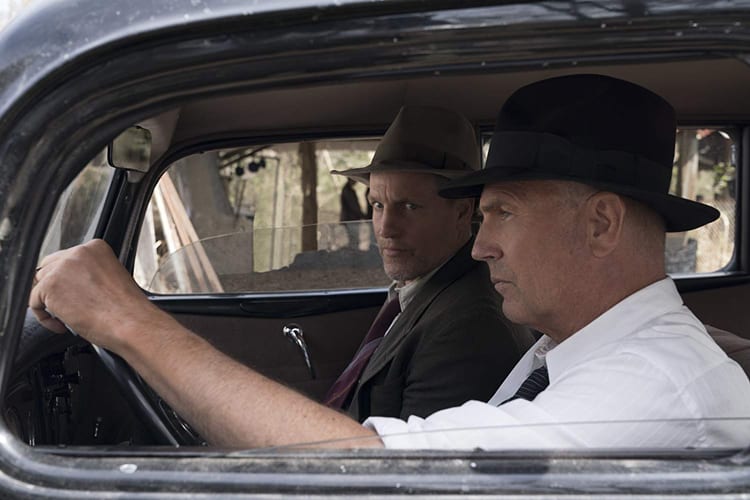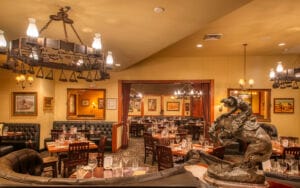Director John Lee Hancock has a perspective problem. In 2009, he directed The Blind Side, which was widely denounced as a white savior film—and rightly so. It told the story of Michael Oher, a young black man who overcame extraordinarily difficult circumstances to become a pro football player. But Oher wasn’t The Blind Side’s protagonist: the movie took the perspective of the white family who adopted him. In the film, Oher’s adoptive mother helps him become a great football player—but in reality, Oher was the No. 5 offensive lineman prospect in the country before he was ever adopted.
Hancock’s 2013 effort Saving Mr. Banks engaged in similar historical revisionism: in the movie, Walt Disney wins over Mary Poppins author P. L. Travers and convinces her to surrender the film rights to her books—but in reality, Disney secured the rights before he and Travers ever met. In Saving Mr. Banks, Travers ends up loving the movie adaptation of Mary Poppins; in reality, she famously hated it. Hancock’s films have a tendency to rework history in order to favor the less interesting perspective. This trend continues with his latest effort, The Highwaymen.
If you’ve heard of the infamous criminal couple Bonnie and Clyde, there’s a good chance you’ve heard of Bonnie and Clyde, the seminal 1967 movie about the duo. The Highwaymen is its companion piece: it switches the story’s perspective to that of the Texas Rangers who caught Bonnie and Clyde. To be fair, the 1967 film engages in a fair amount of historical revisionism itself, particularly where the Texas Rangers are involved. But at least Bonnie and Clyde was told from an interesting perspective, one that cemented it as a landmark of countercultural cinema. The Highwaymen doesn’t rise above your typical good-guys-catch-the-bad-guys tale.
This is largely because of its plodding pacing. The Highwaymen is a slow, turgid, repetitive movie. Texas Rangers Frank Hamer and Maney Gault drive the American countryside, discuss the business of killing criminals, stop at towns for information, nearly catch Bonnie and Clyde, and then do it all again—over and over, rinse and repeat. The movie is over two hours and could have easily been less than ninety minutes.
The meat of the movie is the conversations between Hamer and Gault, who are portrayed by Kevin Costner and Woody Harrelson in muted, evocative performances. John Fusco’s screenplay adds some much-needed gray area to Hancock’s brand of black-and-white narratives: The Highwaymen acknowledges the hypocrisy of slaughtering people in the name of the law. And yet the Texas Rangers are depicted, however variously, as quintessential American heroes—Hancock shoots them like they’re saviors of old Westerns. It would be reductive for The Highwaymen to take a firm stance on the moral substance of Hamer and Gault, but it doesn’t engage in reflective examination either. All we get is the mere acknowledgement that there’s a moral contradiction here.
Historical revisionism only muddies the waters further. Why invent a fictional scene in which Clyde’s father begs Hamer to kill his son? The movie is tuned in to important questions but the filmmakers don’t seem to know what they want to say—it’s like there’s a more thought-provoking movie lurking behind each scene of The Highwaymen. If it were more entertaining, perhaps the questions it raises would be enough.
★★½ (2.5/5)




